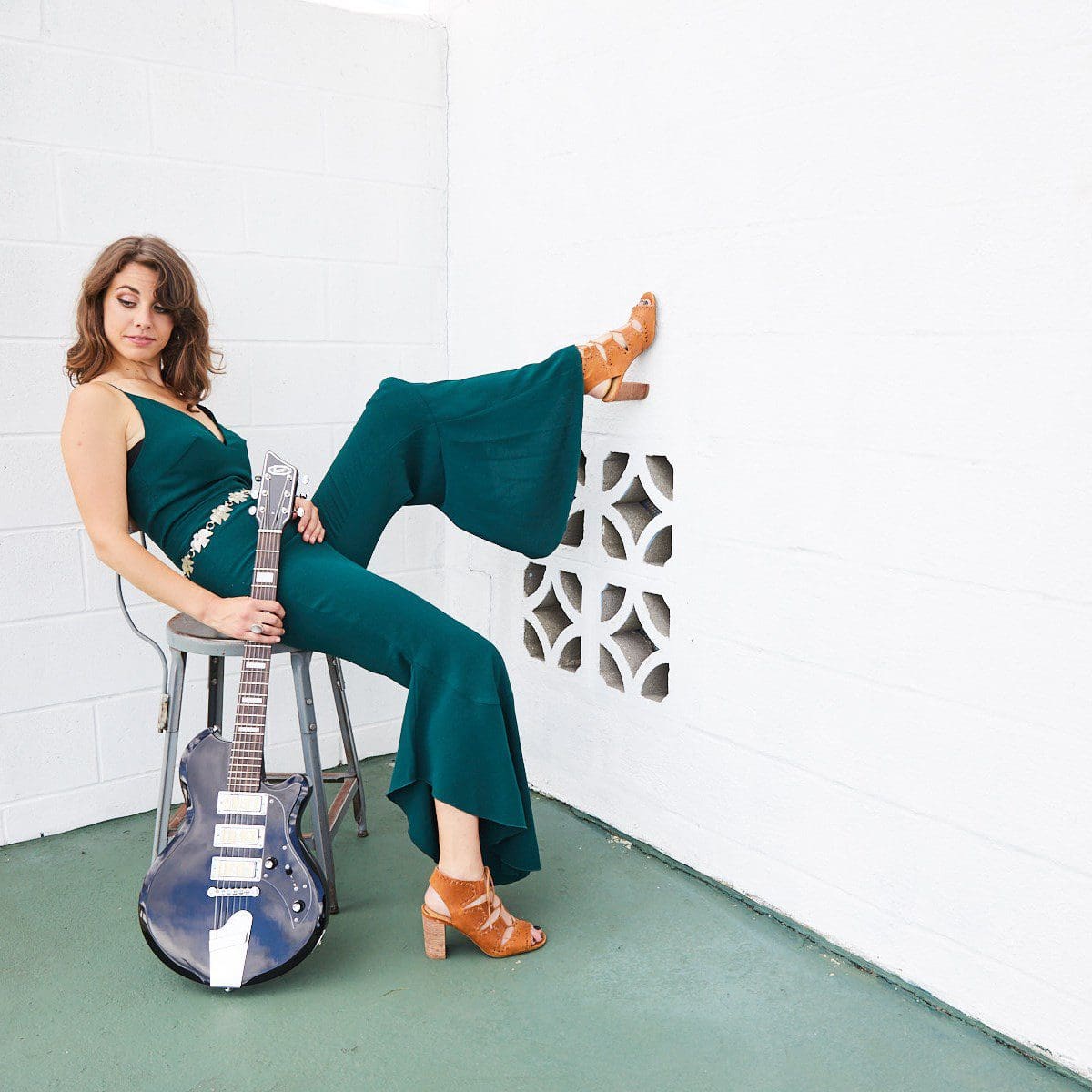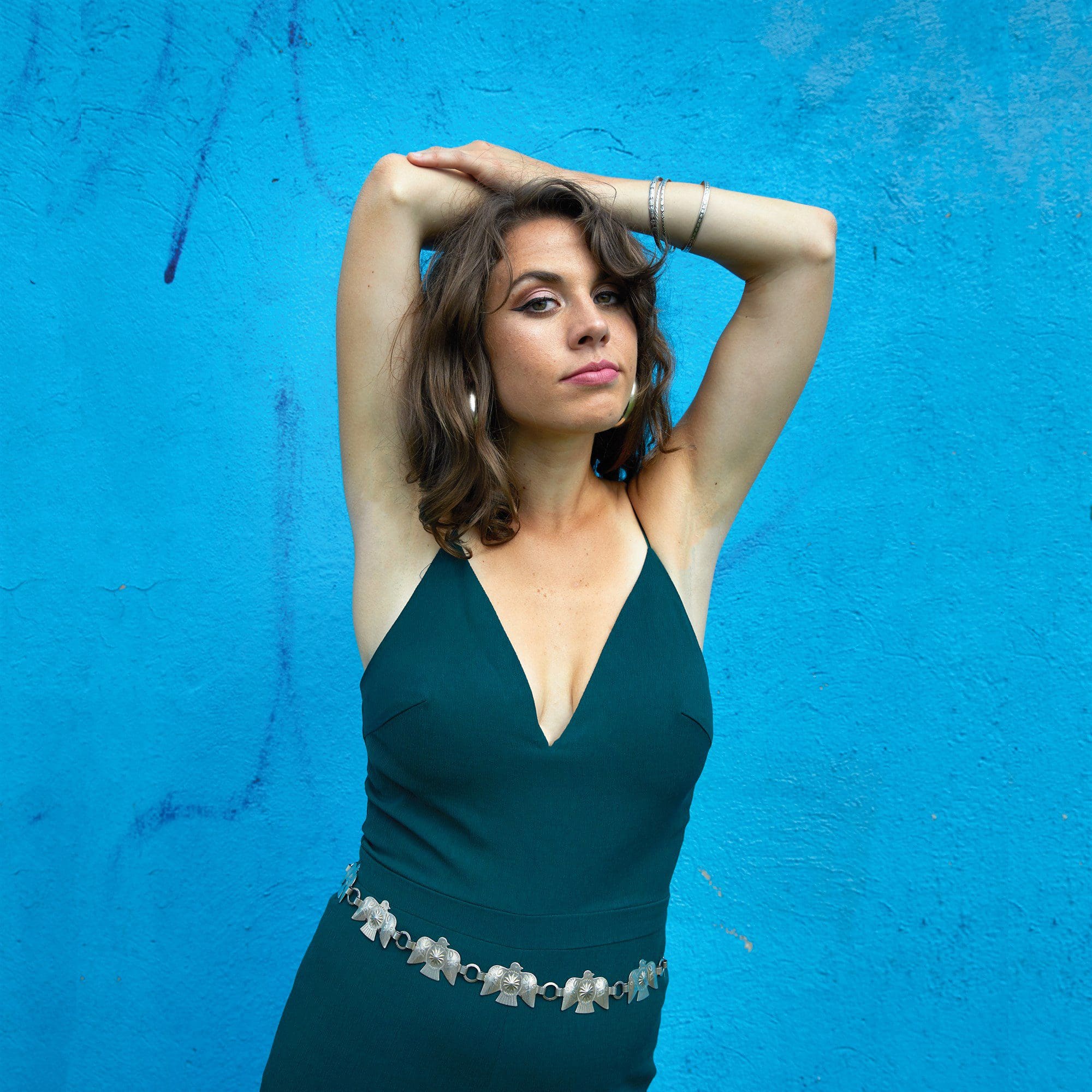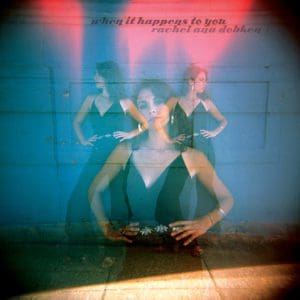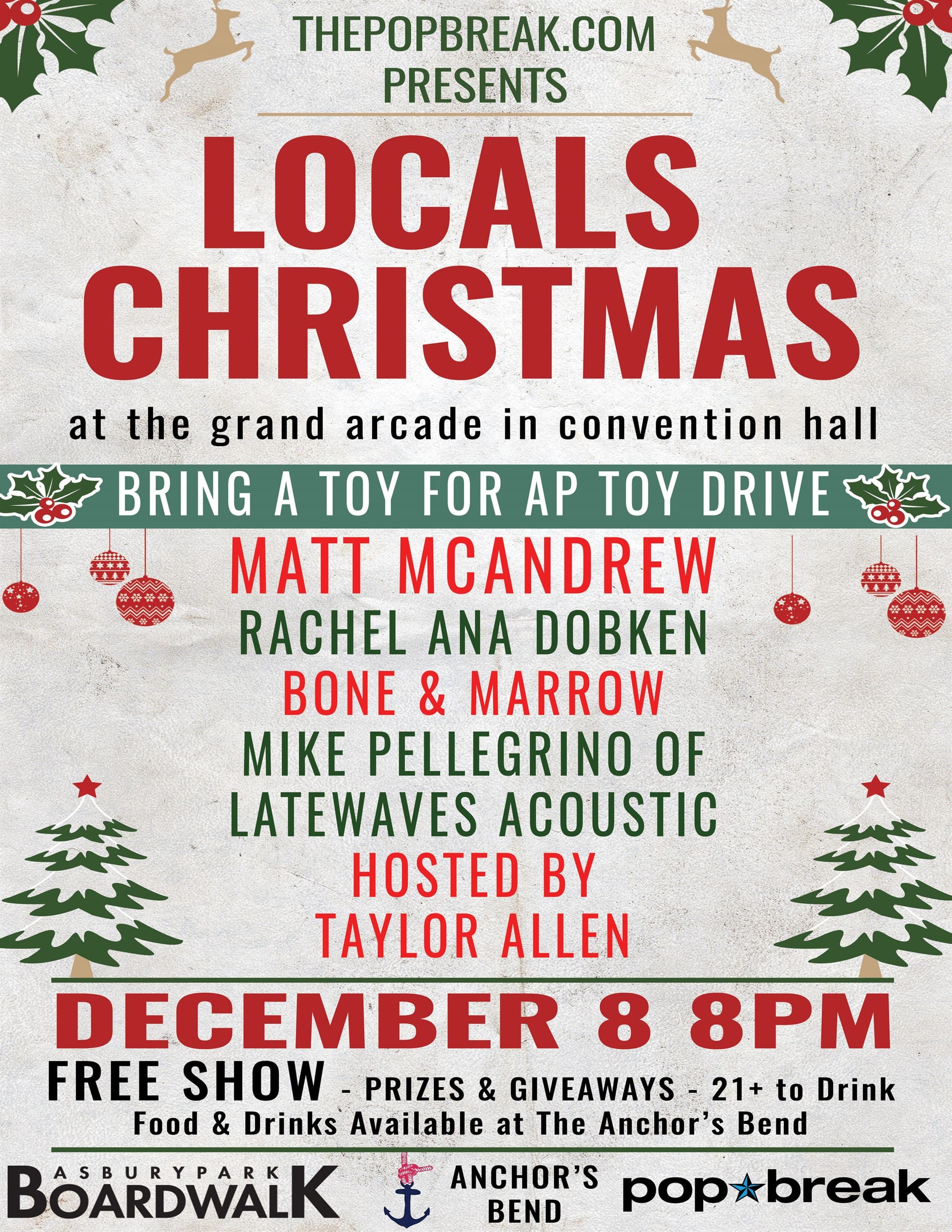For those of us living in it right now — we might not realize how much of a wild music scene Asbury Park is right now. It’s a scene where original music is not just on display — it’s celebrated. It’s a scene where national touring artists don’t just stop because that’s where they’re booked — they come here to jam, and to create, and to get inspired. It’s a scene where the people in it work together, gig as often as possible, and support each other’s artistic visions.
If we had to crystallize this scene in one artist — one could easily make the argument that Rachel Ana Dobken embodies the current nature of the Asbury Park music scene.
The Fair Haven native who cut her teeth musically at both Bard College in New York, and the hip Brooklyn scene before returning home about two years ago. Walking into the scene she was a woman with songs in her head, and drumsticks in her back pocket. In that time she went from just another face in the scene, to someone (as we mentioned) embodies what this scene has become. She’s recorded a fabulous solo record — collaborating with an immense pool of talent from the Asbury scene.
As a team of Danny Clinch’s Transparent Gallery she’s the famed rock photographer’s right hand when it comes to music. She books bands, promotes them, and will often find herself behind a drum kit, or in front of the mic. And sometimes that puts her in the groove with people like Brian Fallon, or jamming at the Sea.Hear.Now Festival with a mind-blowing array of local and national artists.
Simply put, Rachel Ana Dobken is an artist born of this scene, and is now becoming one of the driving forces of it.
We sat down with Rachel to talk about her new record When It Happens to You, meeting and working with Danny Clinch, and more as she gets set to perform at our third annual Locals Christmas Party on Saturday December 8 at The Grand Arcade of Convention Hall.
You played so many instruments on When It Happens to You — pretty all of them outside of the harmonica. Does knowing so many instruments, as well as you do, complicate the writing of the music?
It complicates things in the sense that I have a certain sound that I want. I want it to sound a certain way either arrangement-wise or tonally and it’s hard to let go of that control. Sometimes there’s magic that happens when you’re playing with people and allowing them to have their own spin and voice on it. It’s a very fine line that I’ve always walked as a band leader.
In terms of like the record and arranging and writing … I will just hear things. It’s not a conscious thing. It’s funny you asked this because I was showering before and I had a song come to me. This happens all the time where I will hear a melody and then I’ll either discover a lick, or a lyric. I continue hearing the melody and I will then build the song around that.
So sometimes it will happen like it did with, “Taking My Time”… that lick is what came to me first (which became the melody for the chorus). That is what came to me first today. And then very shortly after that I hear the drum beat. I always go back to rhythm. I feel that all musicians have their given instrument that they are meant to play and be the most comfortable with. For me it is definitely the drums. It’s what comes most naturally to me and it’s always been that way. So it is helpful in that regard because I’ll hear a song and immediately I’ll know the groove.
Most drummers stay drummers. Once they get behind the kit they’re there for life. What inspired you to go from behind the kit to the front of the band?
I always knew I was a drummer but I didn’t start playing until I was 19 because my mom wouldn’t let me have drums in the house.I originally started on guitar although it was a very overwhelming instrument for me and it still is in a lot of ways. It does not come naturally to me.
I think there’s two sides to me — I’m a drummer, but I’m also a songwriter. I think about the drums as a songwriter. I’ve had people tell me before that they love my drumming because it’s so musical. That’s the greatest compliment because I think as a musician everything comes back down to listening. It’s about what a song says and as a drummer you have to understand how to be modest, not to overplay, and when to sit back. You need to know that this needs a simple push here or a little fill here. I can’t separate the two [drumming and songwriting] because I hear a song then I hear the drums. I hear the drums and then I hear the rest of the song, the two are not mutually exclusive. I mean I definitely have to have a melody first so I think it’s just always been there.
But Drums came much easier than guitar, right? Still does, I’d assume.
I like sitting down and being able to improvise on the drums. You could put me on stage at Brooklyn Bowl with 700 people in the audience and have me play a song I’ve never played before and I know I could figure it out on the spot. I cannot do that on guitar. It’s not that I’m not a good guitar improviser, but I’ve always had really good rhythm and my professors [at Bard College] always told me my strength was my internal clock. It was just that I knew the natural metronome and it’s always interesting because it’s a similar thing with singing and performing.
You got your musical start at Bard College in upstate New York, you spent time doing the post-collegiate living/playing in Brooklyn thing. So when did you get down to the Asbury scene?
I grew up in Fair Haven. Growing up I was really nervous and shy kid. I loved music and was a closet musician. I played guitar, but saying that, I never played in front of people and I always wanted to. All my friends were musicians and I was in awe.
When I was a kid, we would go to shows and my first real concert as a teenager was 311 at Convention Hall and I was 14. At the time there wasn’t really anything going on in Asbury. The summer going into college all of my friends were musicians playing The Pony and all around. I met Matt Wade when I was about 19 and he introduced me to going out in the scene. We’d go see Matt O’Ree and others. As I would come home on breaks, I would always end up in Asbury and over time met all the musicians I know now. There’s clearly been a slow burn over the past couple of years of a “building” of the scene.
How’d you end up working with Danny Clinch?
I used to work at Relix Magazine. I was an intern and then I got hired to do freelance graphic design. The way I originally met Danny was I designed The Gentlemen of The Road newspaper, and we ran an interview with Danny. I remember thinking he and I had so much in common — both from the Jersey Shore, both musicians, both photographers.
We had a quick hand shake at that show but it wasn’t until about November of that year [2015]. I played in The Last Waltz Tribute at The Pollak Theater at Monmouth University. I played drums and Danny was in the audience and I recognized him immediately because I saw the hat. We didn’t get to talk but I sent him an email because we had talked previously over e-mail. I was like, “Hey, I saw you, we should link up.” He responded “Oh yeah you’re the drummer girl with the jumpsuit on. My wife and I loved you.” And then he was like if you’re around tomorrow night my band [Tangiers Blues Band] is playing Jersey City, you should come. I ended up sitting in that night on the drums.
After sitting in, I moved back home and I walked into the gallery, right around when they opened up. At first he asked me about the equipment they had for bands. He asked me “Hey, if I had a band come by, or some of my friends and they wanted to jam would this be good, or no way?” And I was like, no, this is totally legit. He bought a great bass line and then he told me about his vision for the gallery and I was like, well, if you want I can help you with some music. I know a bunch of musicians around here. And then like, that’s how that all started
How has this impacted you and your musical career?
I mean it’s enormous. I’ve met so many amazing people through Danny and there’s so many great people who just walk in off the street every time I’m there. They come in and talk to Tina [a Clinch employee] and myself. So many of them are interesting artists and creative people — you never know who’s going to walk in. One day out of the blue Mickey Raphael is there — he’s Willie Nelson’s harmonica player. He’s Danny’s idol, but Danny was out of town. He and Willie’s bass player we end up having a 20 minute conversation about The Band, and he ends up inviting me, and a few others to PNC where they were playing that night. So we all end up back stage that night.
Aside from that all the playing and the band leading — it’s definitely made me a better band leader. It’s definitely stressful because we don’t ever rehearse. We play very frequently together and we have to come up with things on the fly. We’re always sort of improvising when we’re up there. It certainly makes you a better musician having to do that kind of stuff.
Speaking of being a band leader — you definitely had an a ton of excellent Asbury musicians on hand to play on this record whether it was Ian Gray (Remember Jones) or Chris Dubrow (The Burns), or Bruce Krwynski (Waiting on Mongo). How much did that influence the record having guys like that on the sound of the record?
I am extremely lucky. Joe Henderson and Chris Dubrow (of The Burns) are like my brothers. I would go to the ends of the earth for those guys. Dan Haase is my normal bass player and Dan is incredible. I’m extremely lucky that could he could play on the record; I think musically we are a fantastic fit. He really came up with all those parts of themselves. He and I got along because when I was behind the drum kit, he knew the groove I wanted, and where it was going to go.
My drummer [Andy Jacle], he’s amazing too. He takes my ideas and then put his own spin on it and then we’ll end up collaborating in that way. He’s always like, ‘I love working with you because it’s definitely what you want, and it’s challenging but it makes sense and it’s cool’.
We all make sense together musically. Joey and Chris were my right hand men on this record. Chris helped me with a lot of the pre-production stuff; he helped me organize my brain. I had all these songs in my head. But I also had to get them out, and I was drumming a number of them, and we weren’t doing most of the songs with live bass, drums, bass, drums, guitar except two or three songs.
I had a groove in my head and I had the song but Chris and I, and Dan and I would get together and then I would have to play them on guitar then the drums so Dan would know the groove I was going for — especially since those songs were never played live before.
I love music and I love playing music and I love all the musicians, all the musicians that worked with me and we all kind of, we’re all on the same wavelength. I’m lucky because I’ve met these guys through these kinds of mentalities and just because they see how hard I work and how like there’s like a mutual love and respect amongst all of us.
What musical story where you’re telling them this record?
This record is really about coming into your own and just coming to terms with things. It’s about going through the motions of life and experiencing things that you may not have experienced on that level before. The whole story of someone giving you advice. ‘I can tell you this and this, but until you experience it yourself, you’re not going to know what it all means until it happens to you.’
Finally, where do you want to see yourself as a musician one year from today?
This is a tough one! I’d have to say, continuing to play important shows in the Asbury Park, NYC, and Philly markets, with hopefully a little touring mixed in. I definitely want to produce some more content — at least some more singles and videos. I would really like to say I’ve played with bands I haven’t yet in this community, and continued to play with all the folks I love around here in Asbury Park! And hopefully some collaborations. Who knows but there’d better be some dang good progress.






Comments are closed.